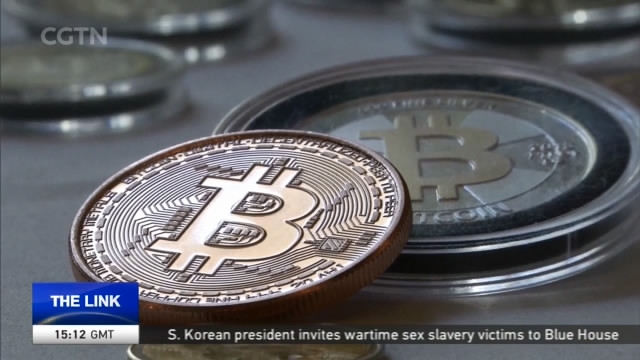
07:23, 05-Jan-2018
Cryptocurrency Craze: China's ban won't stop digital currency mania globally

Bitcoin, along with many other virtual currencies, had a roller-coaster year in China in 2017. The Chinese government eventually deemed it too risky to allow its continued trade. However, that hasn't stopped many punters from taking interest in the new investment option, however. Mi Jiayi has spoken to analysts, and recaps developments over the past year.
The regulation of bitcoins in China tightened gradually throughout 2017. Around mid-year, however, some companies began introducing Initial Coin Offerings, as a means of fundraising. The ICOs became so popular that by mid-July China had 43 ICO exchange platforms. And that was too much for the central bank. In September it announced a ban on all ICOs by Chinese firms, saying that method of fundraising was too risky for individual investors. And that was followed by a complete ban on all cryptocurrency trading exchanges in the country. By the end of October, they had all shut down.
ZHAO KUNPING, CHIEF ANALYST BANK OF COMMUNICATIONS "Although our financial markets have developed a lot, the investment options are still limited. So there was a lot of bitcoin investment in bitcoins in China. The regulator has always focused on containing risks, and of course there are a lot of risks in the financial sector - high leverage, shadow banking, local government debt. Bitcoins raised the possibility of triggering even more risks, so it was necessary to control it."
While domestic digital currency investment was banned, however, Bitcoins are still trading internationally, and are now even more popular among investors here.
CAO YIN, CHIEF ARCHITECT ENERGY BLOCKCHAIN LABS "In some ways, the government's latest regulations had blowback. It was a very high profile regulation - with seven ministries issuing a joint document, and many media reports. So many people who didn't know about bitcoins or ICOs learned about them. And trading overseas is still very active, the price was going up like crazy. So many investors were tempted. I'd say the regulation was a risk education to our investors, but it also gave bitcoin more publicity."
Cao warns that as long as other countries still allow bitcoin trade, the risks to Chinese investors will always be there. However, many expect that more countries will begin to implement a global supervision of bitcoin trade in 2018, and that more countries will issue regulations to protect investors from risks.

SITEMAP
Copyright © 2018 CGTN. Beijing ICP prepared NO.16065310-3
Copyright © 2018 CGTN. Beijing ICP prepared NO.16065310-3